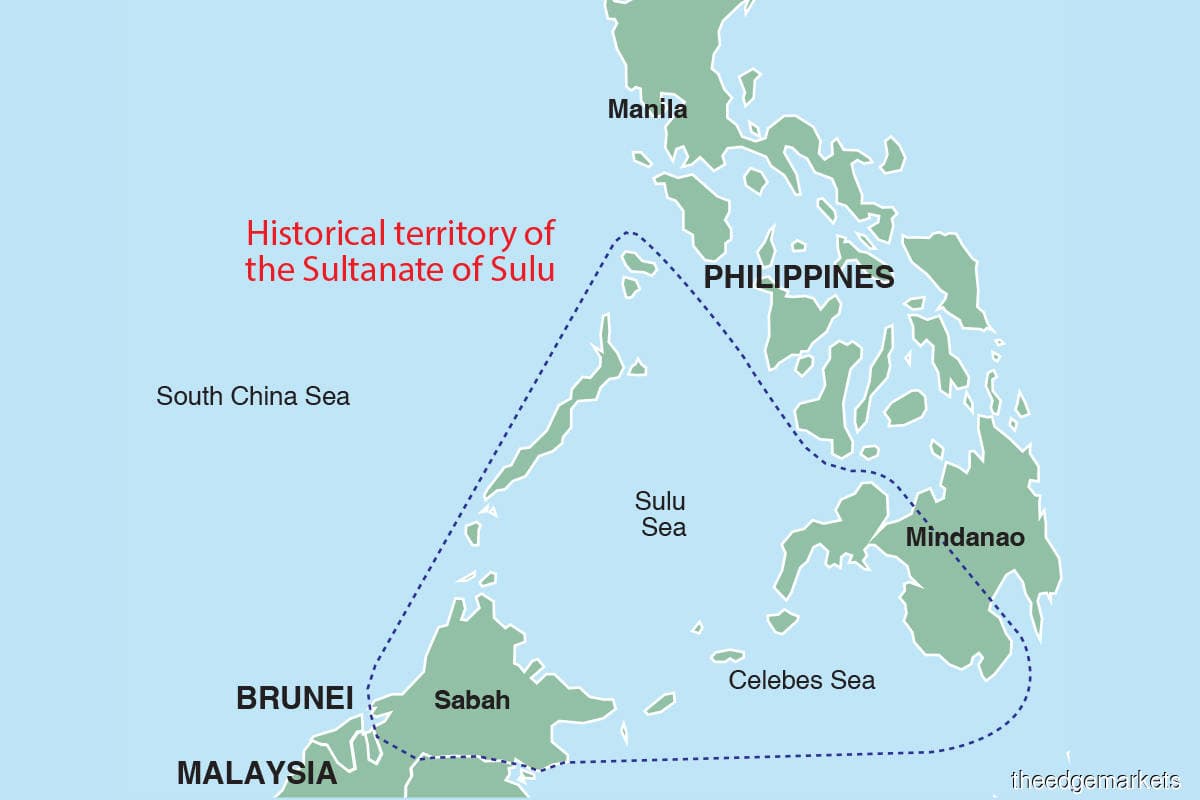
This article first appeared in The Edge Malaysia Weekly on January 30, 2023 - February 5, 2023
LAWYERS acting for the “heirs” of the late Sulu sultan, Sultan Jamalul Kiram II — who are claiming US$14.92 billion (RM64 billion) from the Malaysian government — are disputing claims made by Datuk Seri Azalina Othman Said, minister in the Prime Minister’s Department (Law and Institutional Reform) last week.
Last Thursday, Azalina had said in a press statement that the district court of Luxembourg had set aside the attachment order requested by the heirs to the sultan, which involved arbitration awards by Spanish arbitrator Gonzalo Stampa amounting to US$14.92 billion.
In her press release dated Jan 26, Azalina had said, “Malaysia has availed itself of all available legal remedies to invalidate the appointment of Stampa and his purported ‘awards’. As a result, the Spanish court that initially appointed Stampa retroactively invalidated his appointment and nullified the alleged ‘preliminary award’ that he rendered in Madrid.”
Azalina’s move in firing the first salvo in the new year possibly caught the claimants off guard.
In a response last Friday, Paul Cohen from British law firm 4-5 Gray’s Inn Square, who is co-lead counsel for the eight claimants, implies that Azalina has not painted an accurate picture.
Cohen says, “We are pleased that the minister invokes the authority of the Superior Court of Madrid in establishing whether the arbitration was, as Malaysia claims, annulled in Spain. But, on Dec 1, 2022 that court unanimously ruled that the arbitration stands, and that Malaysia’s actions, which the court’s ruling described as ‘procedural fraud’, had not managed to invalidate it. The Malaysian government statement omitted to mention this.
“Malaysia’s strategy has relied upon telling the world and jurisdictions across the globe that the Spanish courts have annulled the arbitration. The Spanish court, as the minister’s lawyers might want to tell her, has ruled the opposite... . But during the year, the interest payments on the award have risen by one and a half billion dollars ... an expensive strategy,” Cohen says.
News reports in Spain as well do not seem to paint a very positive picture for Malaysia. However, it is not clear if there is any hidden agenda at play.
The Edge had reached out to Azalina’s office for comment, but her officials were not forthcoming. The Edge understands that the judgement for the case has yet to be signed, and thus is unavailable for viewing, which has led to both parties, the Malaysian government and the claimants, taking a cautious stance.
To recap, the legal dispute between the Malaysian government and the eight claimants, purported “heirs” of the late Sulu Sultan Jamalul Kiram II, erupted in end-January 2018 in Madrid. The dispute is predicated on an 1878 agreement between Sultan Mohamet Jamal Al Alam (the sultan of Sulu then) and Baron de Overbeck and Alfred Dent, which granted perpetual sovereign rights over what is part of a chunk of Sabah today, in return for an annual token payment of RM5,300, which Malaysia has been paying since 1878.
However, the administration under former prime minister Datuk Seri Najib Razak ceased the annual RM5,300 payment in 2013, after an incursion where more than 200 armed militants invaded Lahad Datu resulting in 78 deaths. While Malaysia says the militants are linked to the sultan of Sulu, which would mean the 1878 agreement was breached, the eight heirs dispute this link.
After several attempts to reach out to the Malaysian government, the claimants sought arbitration in Madrid. Stampa, the Spanish arbitrator, was instructed by the Madrid High Court to discontinue the arbitration and was terminated as Malaysia claimed to have not been properly notified about the arbitration.
Stampa pushed the arbitration from Madrid to Paris, where the Sulu sultan’s heirs were awarded a huge payout of RM14.92 billion, which Malaysia has not recognised.
In July last year, two Petroliam Nasional Bhd units — Petronas Azerbaijan (Shah Deniz) Sàrl and Petronas South Caucasus Sàrl — were served with a saisie-arrêt. Saisie-arrêt is the French term for an action undertaken by a creditor to garnish the property of a third party for debt owed to the former.
As initial reports had it that the two companies were worth about US$2 billion, Petronas is understood to have repatriated the funds in the two companies.
While the value of the two companies was being disputed, a source familiar with the claimants clarified that the value of the companies was immaterial but that the claimants were just showing what they could do.
In late September, lawyers acting for the heirs of the late Sultan Jamalul Kiram II applied to the Dutch courts to seize assets belonging to national oil company Petronas.
Petronas — via Dutch companies such as Petronas Carigali Canada BV, Petronas International Power Corporation BV and PLI (Netherlands) BV — has extensive assets in Canada, India and Indonesia, among others.
Petronas’ 51% unit, shipping company MISC Bhd, also has several large companies in the Netherlands.
Backing the Sulu sultan’s heirs on this venture is Therium — a company registered in Jersey, one of the British Channel Islands and headquartered in London — and one of the world’s largest litigation funding firms. Until September last year, Therium is understood to have sunk as much as US$10 million into the dispute between the heirs to the Sulu sultanate and the Malaysian government.
Save by subscribing to us for your print and/or digital copy.
P/S: The Edge is also available on Apple's AppStore and Androids' Google Play.